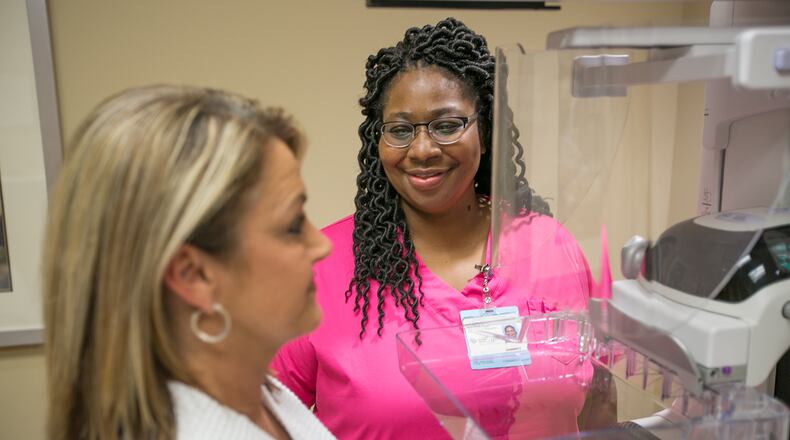Significantly more African American women experienced late stage diagnosis.
Unfortunately and as reported by Augusta Health in 2017, fear or affordability prevent many women from either getting a regular mammogram or returning for a follow-up diagnostic evaluation.
Mammography finds breast cancer early and saves lives.
Most women’s results are normal, but a few are called back for diagnostic evaluation.
Of those called back, 90% will have non-cancerous findings caused by dense breast tissue, calcification, a cyst, lesion or an unclear picture.
Less than 10 percent will have a precancerous or cancer finding diagnosed at Stages 0 - 4, according to the American Cancer Society.
Today’s 3-D diagnostic mammography provides layered views of all types of the breast tissue, which helps prevent late stage cancer and death.
If cost is a factor, there are local organizations that provide free or reduced cost breast examinations and women can self-refer for a routine mammogram.
Let’s work to prevent late stage breast cancer by getting regular mammograms, following up if called back for diagnostic evaluation, and having regular conversations with family and friends about good breast health.
Then we will be Breast Health Heroes.
Cheryl Cain Scroggins is project manager for Community Health Centers of Greater Dayton’s Fighting Against Breast Cancer (FAB) Project. For a FAB brochure or to participate, contact cscroggins@chcgd.org. Guest columns are submitted or requested fact-based opinion pieces of 300 to 450 words. Proposed pieces should include links to any research or statistics cited. Have an idea? Contact Amelia Robinson at arobinson@DaytonDailyNews.com.
About the Author

